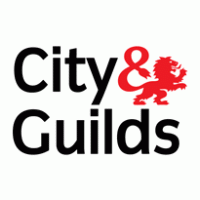
Health and Safety in the Catering Industry
Common causes of accidents and ill health at work.
Slips, trips & falls.
Slips and trips remain the single most common cause of major injury in the UK workplaces. The occupations most affected are kitchen assistants, chefs and waiting staff.
Food spillages:- Spills from food or cooking are among the main causes of slips in kitchens. Staff must be vigilant and clean up any spilled substance that could cause a hazard
Water overflow or leak
An overflowing sink or a leak that causes water to drip onto the floor can create a serious slip hazard, especially on a smooth floor. Stop it from getting onto the floor in the first place. Turn off taps and fix leaks quickly - use drip trays or something similar as a temporary measure.
Trip hazards
An unexpected obstacle in your path can cause a serious trip and fall. People need a clear space in which to work, so make sure boxes, bags, cables and other obstacles aren't left lying around. Storage should always be provided for incoming deliveries and staff belongings.
Lifting, manual handling & upper limb disorders
In kitchens there are many tasks that, without proper controls, can cause back pain or upper limb injuries that can affect hands, wrists, shoulders and neck.
Forceful or repetitive activities and poor posture can be linked to upper limb injuries.
The Manual Handling Operations Regulations 1992 (MHOR) require employers to:
Avoid the need for hazardous manual handling, so far as is reasonably practicable.
Assess the risk of injury from any hazardous manual handling that can’t be avoided.
Reduce the risk of injury from hazardous manual handling, so far as is reasonably practicable.
Dermatitis
Contact dermatitis is one of the main causes of ill health for catering staff (chefs, cooks and catering assistants) with the number of new cases per year being twice the general industry average.
It is often called eczema and develops when the skin’s barrier layer is damaged. This leads to redness, itching, swelling, blistering, flaking and cracking. The most susceptible parts of the body are the hands, followed by the forearms and face. It can be severe enough to keep you off work or even force you to change jobs.
You can prevent dermatitis developing with a few simple measures:
-
Avoid contact with cleaning products, food and water where possible, eg use a dishwasher rather than washing up by hand, use utensils rather than hands to handle food.
-
Protect your skin. Where you can, wear gloves when working with substances that can cause dermatitis and moisturise your hands to replenish the skin’s natural oils.
-
Check your hands regularly for the early stages of dermatitis, ie itchy, dry or red skin. These symptoms should be reported to a supervisor, as treatment is much more effective if dermatitis is caught early.
Cuts from knives.
Accidents involving knives are common in the catering industry. They usually involve cuts to the non-knife hand and fingers but can lead to injuries on the upper arm and torso.
Ways to minimise the risk:
Do
-
Train employees in the safe use of knives and safe working practices when sharpening knives
-
Use a knife suitable for the task and the food you are cutting
-
Keep knives sharp
-
Cut on a stable surface
-
Handle knives carefully when washing up
-
Carry a knife with the blade pointing downwards
-
Store knives securely after use e.g. in a scabbard or container
-
Use protective equipment as required. For deboning, it is recommended that a suitable protective glove is worn on the non-knife hand and a chainmail or similar apron is worn.
Don't
-
Do not leave knives loose on worktop surfaces where they can be accidentally pushed off
-
Do not try to catch a falling knife
-
Do not use a knife as a can opener
-
Do not carry knives while carrying other objects
-
Do not engage in horseplay with a knife
-
Do not carry a knife in your pocket
Common Hazards in Catering
-
No guards on food slicers
-
Overloading of electric sockets
-
Obstructed fire extinguishers and blocked exits
-
Use of casual footwear instead of safety shoes
-
Exposed wires
-
No internal door handles in walk- in chill rooms
-
Spillages not cleared up
-
Inadequate ventilation
-
Poor knife handling and storage
-
Inaccessible first aid box
-
No fire blankets for deep fat fryers
-
Poorly maintained/ damaged microwave ovens resulting in microwave leakage

